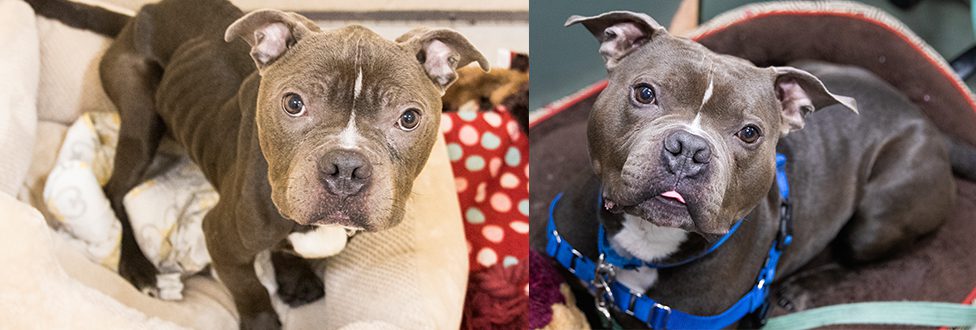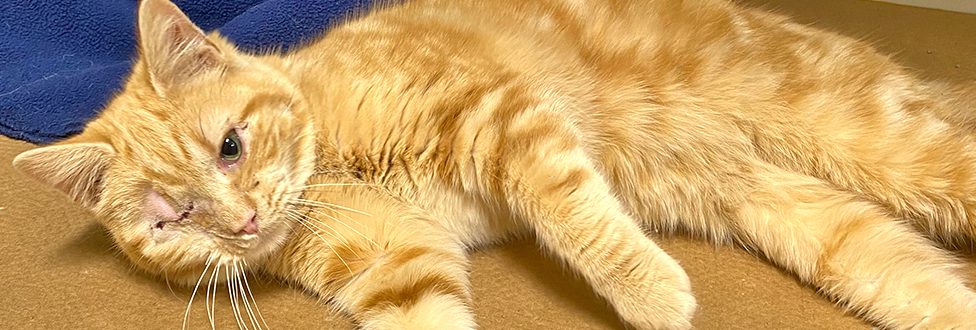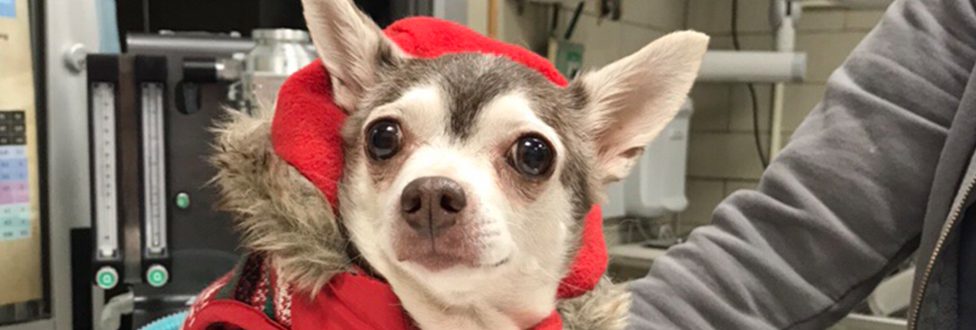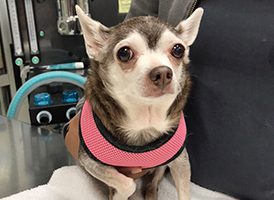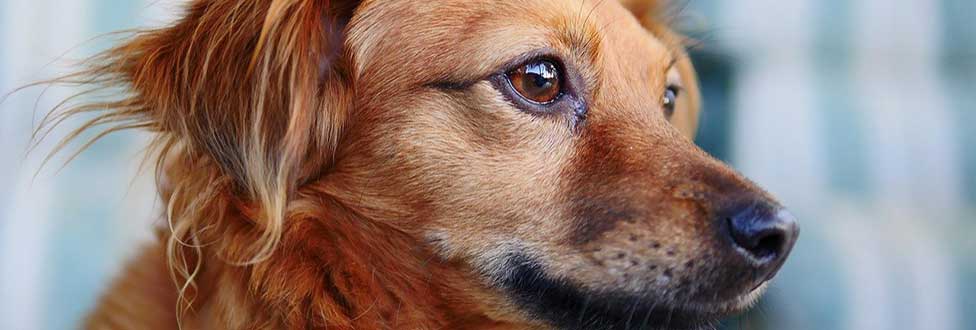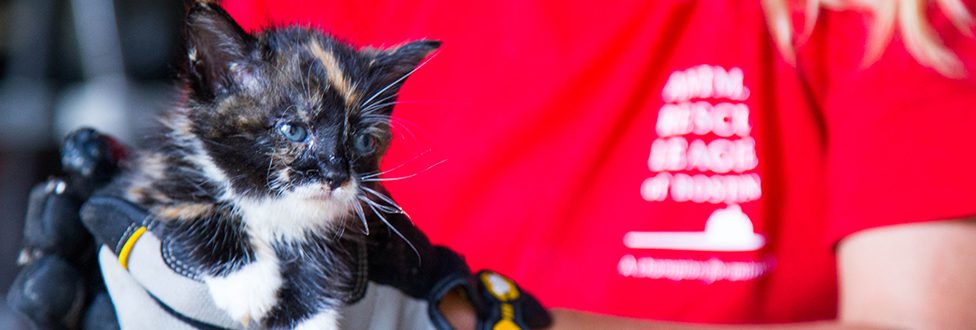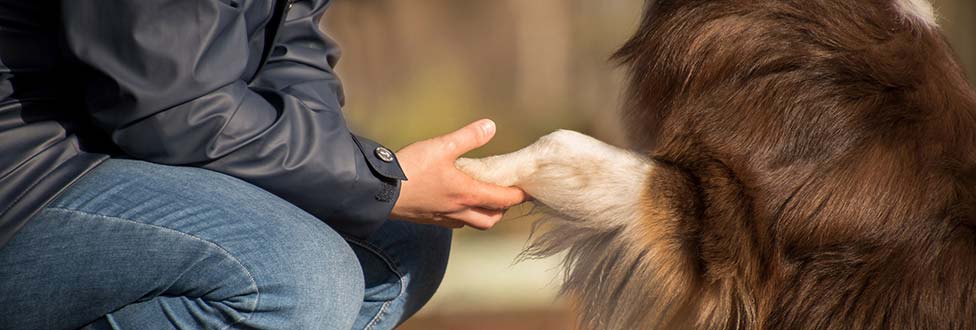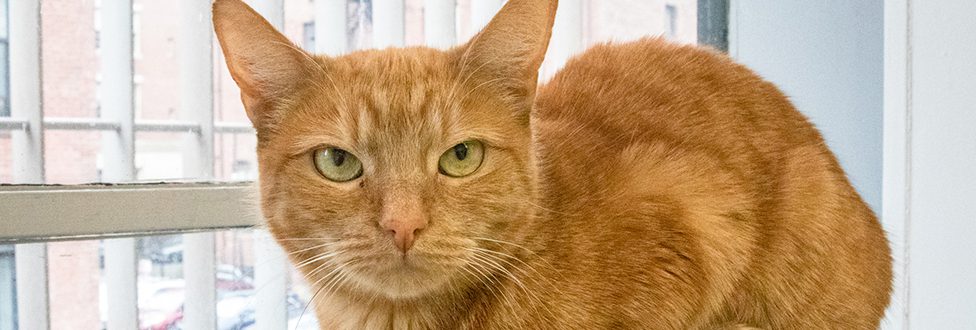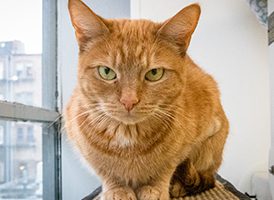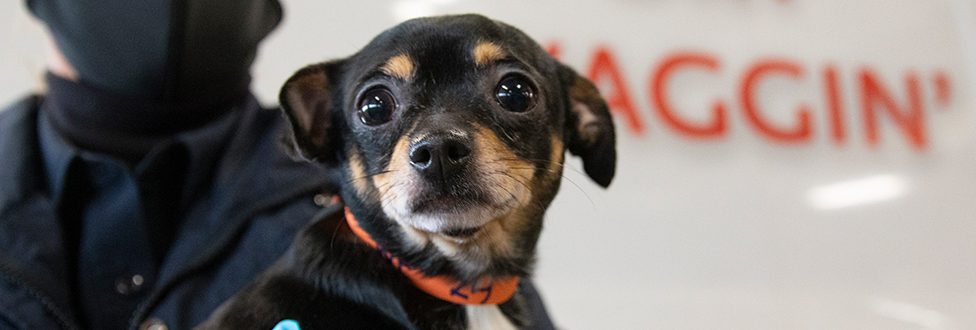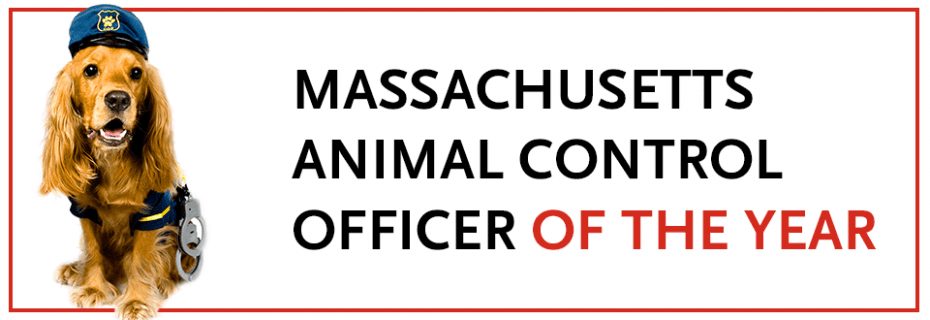Benji’s Remarkable Transformation
ARL granted bond request in case
In 2017, legislation was enacted in an effort to strengthen financial protections for animal care facilities like the Animal Rescue League of Boston (ARL), who provide long-term care for an animal who is the subject of an active animal cruelty investigation and prosecution.
The legislation allows the prosecuting agency to request a court order for the accused to post a security bond, which can be used to recuperate costs of shelter, food, medical care, behavioral training, and other related costs.
If granted, the accused would have to either cover the bond or forfeit the animal.
ARL staunchly advocated for this piece of legislation, and in early 2021 ARL was granted a bond in a case dating back to late 2019. It was the first time since the passage of the legislation that ARL was granted such a bond.
Benji’s Story
ARL’s Law Enforcement Department took custody of Benji, now a four-year-old pitbull-type dog in November 2019 – along with dehydration, skin issues, foreign material in his stomach and other medical concerns, he was severely emaciated, weighing just 30 pounds, about half of what he should’ve weighed at the time.
Animal cruelty charges were filed, and while the case made its way through the judicial system, the incredibly friendly and resilient dog began his long journey to recovery.
Given the level of his emaciation, he was put on a strict feeding program and placed into foster care.
With dozens of shelter medicine visits and plenty of love and care, over time Benji got back to a normal weight, and his persistent skin issues were treated.
Case Closed
In early 2021, ARL was granted the security bond, and the accused ultimately agreed to forfeit Benji.
Caring for Benji for well over a year, his foster family had formed an amazing, loving bond, and wound up adopting him!
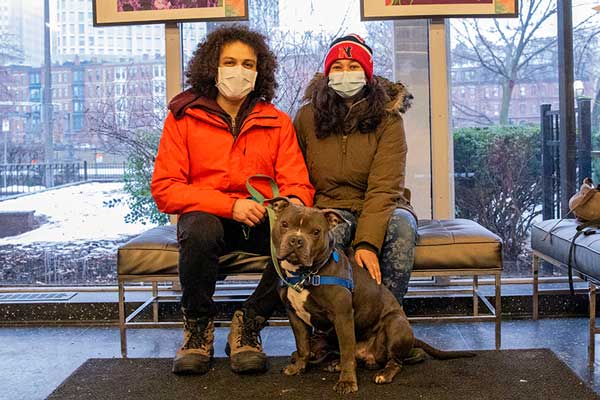
Advocating for Animals
The 2021-2022 Massachusetts legislative has begun and ARL’s Advocacy Department will continue to push for statewide legislation on issues critical to animal welfare in the Commonwealth.
Click here to see ARL’s legislative agenda and for more information on how you can be a voice for those who can’t speak for themselves.

